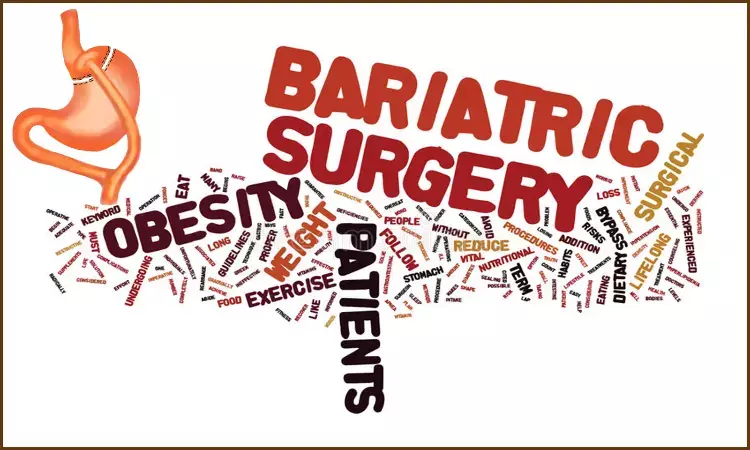- Home
- Medical news & Guidelines
- Anesthesiology
- Cardiology and CTVS
- Critical Care
- Dentistry
- Dermatology
- Diabetes and Endocrinology
- ENT
- Gastroenterology
- Medicine
- Nephrology
- Neurology
- Obstretics-Gynaecology
- Oncology
- Ophthalmology
- Orthopaedics
- Pediatrics-Neonatology
- Psychiatry
- Pulmonology
- Radiology
- Surgery
- Urology
- Laboratory Medicine
- Diet
- Nursing
- Paramedical
- Physiotherapy
- Health news
- Fact Check
- Bone Health Fact Check
- Brain Health Fact Check
- Cancer Related Fact Check
- Child Care Fact Check
- Dental and oral health fact check
- Diabetes and metabolic health fact check
- Diet and Nutrition Fact Check
- Eye and ENT Care Fact Check
- Fitness fact check
- Gut health fact check
- Heart health fact check
- Kidney health fact check
- Medical education fact check
- Men's health fact check
- Respiratory fact check
- Skin and hair care fact check
- Vaccine and Immunization fact check
- Women's health fact check
- AYUSH
- State News
- Andaman and Nicobar Islands
- Andhra Pradesh
- Arunachal Pradesh
- Assam
- Bihar
- Chandigarh
- Chattisgarh
- Dadra and Nagar Haveli
- Daman and Diu
- Delhi
- Goa
- Gujarat
- Haryana
- Himachal Pradesh
- Jammu & Kashmir
- Jharkhand
- Karnataka
- Kerala
- Ladakh
- Lakshadweep
- Madhya Pradesh
- Maharashtra
- Manipur
- Meghalaya
- Mizoram
- Nagaland
- Odisha
- Puducherry
- Punjab
- Rajasthan
- Sikkim
- Tamil Nadu
- Telangana
- Tripura
- Uttar Pradesh
- Uttrakhand
- West Bengal
- Medical Education
- Industry
Bariatric metabolic surgery effective in treating non-alcoholic steatohepatitis: Lancet

When treating non-alcoholic steatohepatitis (NASH), bariatric-metabolic surgery is more successful than lifestyle modifications and improved medical therapy, says an article published in The Lancet.
Observational research indicates that non-alcoholic steatohepatitis may be significantly improved by bariatric-metabolic surgery. However, a randomized trial has not yet been conducted to compare the effectiveness of surgery on NASH with the effects of dietary changes and medical treatment. Here, Ornella Verrastro and colleagues present the findings of an open-label, multicenter trial that was created with the specific objective of examining and contrasting the effectiveness and safety of bariatric-metabolic surgery with lifestyle changes combined with the very best medical care as a treatment for histologically confirmed NASH.
Three significant hospitals in Rome, Italy, participated in a multicenter, randomized, open-label experiment. Participants with obesity (BMI 30-55 kg/m2), type 2 diabetes (with or without), and histologically proven NASH were included. Participants were aged 25 to 70. Participants were randomized (1:1:1) to get Roux-en-Y gastric bypass, sleeve gastrectomy, or lifestyle change along with optimal medical care. Histological remission of NASH without worsening of fibrosis at 1-year follow-up was the study's main objective.
The key findings of this study were:
1. We biopsy examined 431 patients between April 15, 2019, and June 21, 2021; of them, 103 (24%) did not have histological NASH, and 40 (9%) withdrew to participate.
2. With biopsy-proven NASH, 288 (67%) patients were randomized to get Roux-en-Y gastric bypass, sleeve gastrectomy, or lifestyle change plus best medical care (n=96 [33%]).
3. In the intention-to-treat analysis, the proportion of patients who fulfilled the main endpoint was greater in the Roux-en-Y gastric bypass (54 [56%]) and sleeve gastrectomy (55 [57%]) groups than in the lifestyle modification.
4. In comparison to the lifestyle modification group, the calculated probability of NASH resolution was 360 times higher in the Roux-en-Y gastric bypass group and 367 times higher in the sleeve gastrectomy group.
5. The main objective was met in 54 (70%) of 77 participants in the Roux-en-Y gastric bypass group and in 55 (70%) of 79 participants in the sleeve gastrectomy group in the per protocol analysis (236 [82%] participants who completed the trial), but only 15 (19%) of 80 participants in the lifestyle modification group.
6. In this trial, no fatalities or life-threatening complications were observed.
7. Ten (6%) of the patients who underwent bariatric-metabolic surgery experienced serious adverse events; nevertheless, these people did not need to have additional surgeries, and the severe adverse events were treated medically or endoscopically.
Reference:
Verrastro, O., Panunzi, S., Castagneto-Gissey, L., De Gaetano, A., Lembo, E., Capristo, E., Guidone, C., Angelini, G., Sessa, L., Vecchio, F. M., Pompili, M., Casella, G., Fiori, E., … Mingrone, G. (2023). Bariatric–metabolic surgery versus lifestyle intervention plus best medical care in non-alcoholic steatohepatitis (BRAVES): a multicentre, open-label, randomised trial. In The Lancet. Elsevier BV. https://doi.org/10.1016/s0140-6736(23)00634-7
Neuroscience Masters graduate
Jacinthlyn Sylvia, a Neuroscience Master's graduate from Chennai has worked extensively in deciphering the neurobiology of cognition and motor control in aging. She also has spread-out exposure to Neurosurgery from her Bachelor’s. She is currently involved in active Neuro-Oncology research. She is an upcoming neuroscientist with a fiery passion for writing. Her news cover at Medical Dialogues feature recent discoveries and updates from the healthcare and biomedical research fields. She can be reached at editorial@medicaldialogues.in
Dr Kamal Kant Kohli-MBBS, DTCD- a chest specialist with more than 30 years of practice and a flair for writing clinical articles, Dr Kamal Kant Kohli joined Medical Dialogues as a Chief Editor of Medical News. Besides writing articles, as an editor, he proofreads and verifies all the medical content published on Medical Dialogues including those coming from journals, studies,medical conferences,guidelines etc. Email: drkohli@medicaldialogues.in. Contact no. 011-43720751


